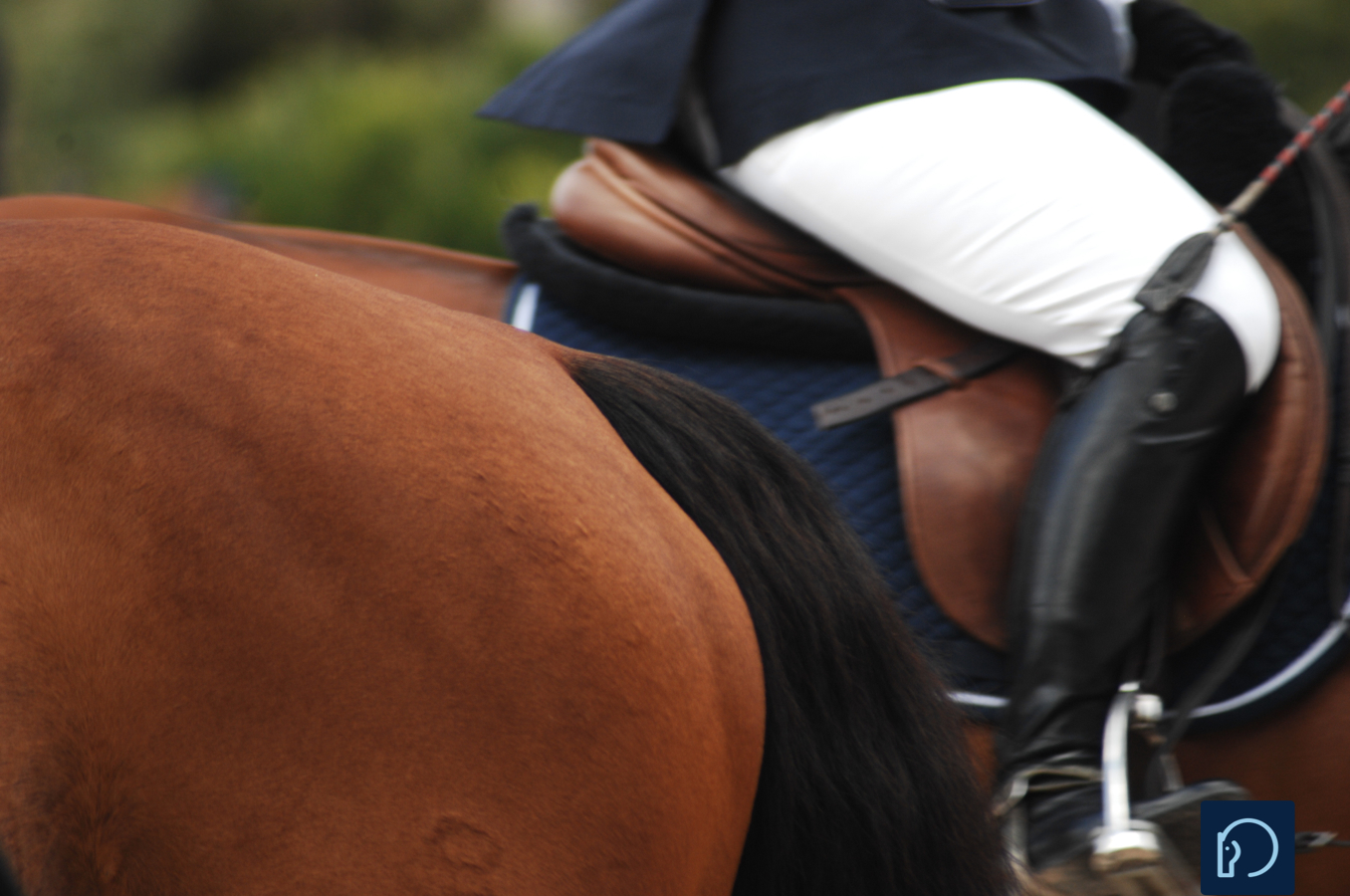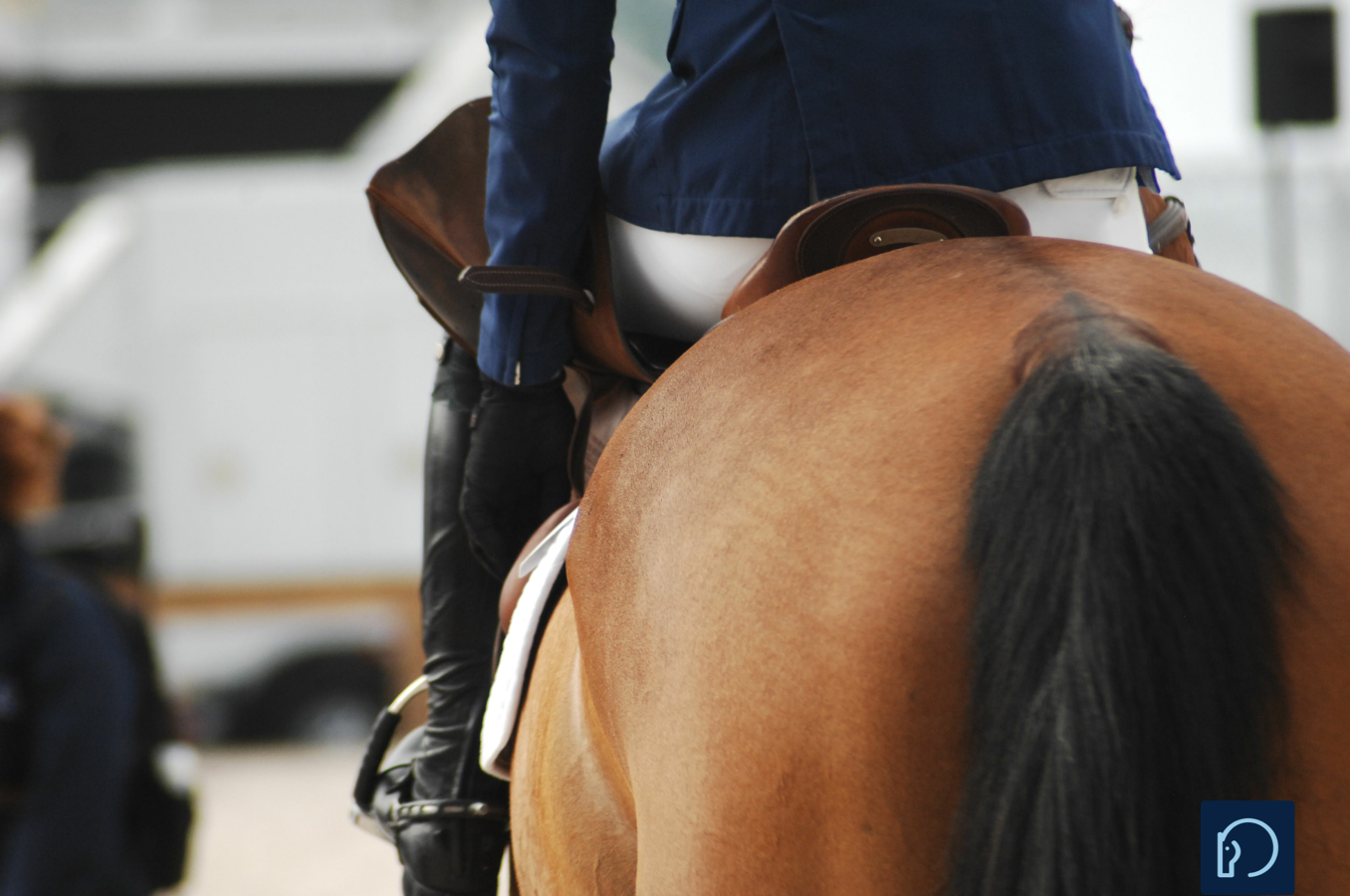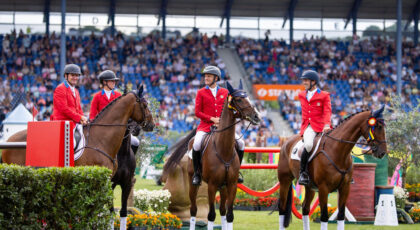Riding is about communicating. You may be clear about your message, but how about the way it’s being delivered? What kind of communicator are you?
The go alongs

If you have this style, what you value most is getting along with others, while avoiding conflict at all costs. “Don’t make waves” could be your motto. If your horse is challenging your aids, you are more likely to try to keep asking the question instead of increasing the pressure or otherwise upping the ante. Or, you may just give up entirely because you begin to second guess yourself or just plain worry. What if I am doing it wrong? What if I am wrecking my horse?
Marshal is a go alonger. He repeatedly apologizes to his coach for being such a poor rider. He even overfeeds his horse treats to make up for whatever mistakes he put him through. He is prone to a lot of negative, doubtful self-talk. His trainer hates how hard he is on himself and spends a lot of energy trying to pump him up.
What she likes best about him though is his great focus in listening. Because he is so concerned with his horse’s well-being, he has become very skilled at listening for his mount’s feedback. His sense of feel is impeccable. Unfortunately, because Marshal does not trust himself to follow through with his knowledge his training is not always fruitful.
Like Marshal, most go alongs are pleasers. They want to be liked at all costs, even if it means sometimes compromising themselves. They may even agree with other’s opinions on the outside when inside they think something quite different.
Likely the biggest cost to this communication style is a diminished sense of self. Go alongs slowly lose faith in themselves because what they reinforce is other’s opinions rather than their own. They end up feeling powerless and sometimes even resentful. Their equine relationships may come to be characterized by too much caution that results in some horses taking full advantage. If you have this style, keep in mind that your horse is a partner in sport and not just a pet. You are the leader of an athletic team.
The drivers

These riders are really quite sure they are right. They demand a lot from their horses, sometimes to the point of stressing them. While their strength is in being very clear, their weakness lies in pushing too hard too fast. Not wanting to stop and listen for feedback from their mounts, they just want to get to the result. If you are a driver, patience is not your strong suit. Emotional control might not be high on your list of attributes either, as the impatience can bubble over into losing your temper.
You can be guilty of ignoring the needs of your teammate in your over focus on getting what you want quickly. A coach’s main complaint about you is you do not take direction very well. You want it your way and when you know you’re right, listening to someone else seems to take time, your precious time!
On the flip side, your strength is that you are very focused and often do get the results you seek. In fact, your powers of attention are akin to a laser-like spotlight.
However, all this intensity is not without cost. Sometimes others may end up resenting you for your bossiness. This includes your horse and your coach. You may be the kind of rider that horses “react” to by acting out, bucking or otherwise trying to escape. Your determination can be just too much for them in an energetic sense. But perhaps the biggest cost to your equine relationships is that unfortunately sometimes you end up getting compliance instead of willingness from your teammates. Drivers can tend to regard their horses more as tools—a means to get to an end goal. If true partnership is what you truly seek, you will have to temper the driver style in you.
The mediators

You are very clear about the rights of yourself and others. You know your horse has feelings and bad days. You realize your coach is likewise to be respected in their goal to help you learn. Every time, you will look for the win-win.
Like the conversations you have with others, you are very clear in what you want from your horse. You will ask for what you want, and then listen to see what kind of reply you get back. Mediators like the conversational aspect of their communications.
Sara used to be more on the go-along side until she realized her horse was becoming stressed from her lack of leadership. A young horse with tender nerves, her mount would begin to become nervous and act out when she didn’t know what Sara was after. Once Sara was able to shift into becoming more of an assertive leader, her horse’s demeanor shifted as well. The new certainty in Sara’s aids gave her horse confidence. Like a child who really wants clear boundaries from their parents, Sara’s horse took great comfort in now knowing what was expected of her. She felt more cared for and protected.
If you are a mediator type, you tend to make others comfortable because they always know where they stand with you. Your coach knows how you feel and is confident you can absorb instruction. Ditto for your horse, who appreciates your consistency and calmness in problem solving.
Speaking of problems, you don’t mind them in the least. You’re not afraid to confront or clear the air. You know that some waves may be necessary to reach calmer waters. For the most part, mediators have very healthy self-esteem. They have learned to trust themselves and to seek out trust in those they interact with. They tend to view their equine relationships as true partnerships.
Obviously, the mediator is the preferred style as it contains the most balance. But do keep in mind that rarely is no one completely one style. More often we are a blend, our weaknesses can be quite specific and fortunately quite changeable. Remaining aware of your own communication style and tweaking it as time as you go gives you the best chance of success in your equine and personal relationships.
About the Author
April Clay is a rider and sports psychologist in Calgary, Alberta. Check out her site www.ridingoutofyourmind.com and selection of online equestrian sport psychology courses, including the Confidence Factor and Riding Through Fear, at www.outofyourmindcourses.com


 April 26, 2016
April 26, 2016 

























